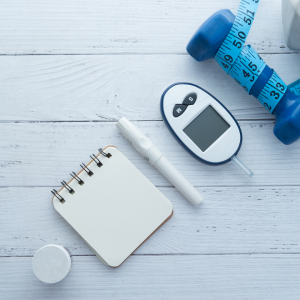Diabetes Distress – Coping Strategies
 People living with diabetes can easily feel overwhelmed by the daily tasks associated with controlling the disease. You must check blood sugar levels often, maintain a medication regimen, follow a healthy diet, exercise regularly, even keep up with regular doctor appointments.
People living with diabetes can easily feel overwhelmed by the daily tasks associated with controlling the disease. You must check blood sugar levels often, maintain a medication regimen, follow a healthy diet, exercise regularly, even keep up with regular doctor appointments.
“Depression or anxiety can happen to anyone, but when it occurs in a person with diabetes, it is often referred to as diabetes distress,” said Anthony Griffin, MD, with Memorial Care. “Managing diabetes can be hard. You can do everything right and still have to worry about too low or too high blood sugar levels, the expense of taking medications and even the possibility of the disease developing into heart disease or other complications.”
According to the Centers for Disease Control and Prevention, 33% to 50% of people with diabetes experience diabetes distress, which occurs when worry, frustration, anger and burnout make it challenging to care for yourself and keep up with the daily requirements for disease management.
Here are some coping strategies that may help if you are suffering from diabetes distress.
- Talk with your primary provider or endocrinologist about your emotional health as well as your physical health.
- Schedule an appointment with a diabetes educator for a brainstorming session to address specific challenges.
- If feelings of anxiety and depression persist, ask for a referral to a mental health counselor who specializes in chronic health conditions.
- Join an in-person or online diabetes support group for camaraderie and pointers on what works for others.
- Be honest with family and friends about the challenges you face in dealing with the disease. Don’t be afraid to ask for help or set boundaries if loved ones are too involved.
- If finances are concerning, ask your care team for information about government or community resources that might help cover the cost of insulin or other expenses.
Related Articles
Diagnosing Diabetes: Test Options
COVID-19 and Diabetes: What You Should Know
Prediabetes – A Wake-Up Call to Prevent Type 2 Diabetes